I reviewed my friend Hilary’s book about her “new normal” after surviving a stroke at the relatively young age of 51 three years ago. As you would imagine, Hilary’s life changed in an instant. She had to contend with her altered appearance and independence due to challenges with her mobility. In the last 3 years, Hilary has worked very hard in concert with her doctors and therapists to get to the stage now where she can move largely unassisted and can once again perform basic self-care tasks. In her book, Hilary explained very clearly what strokes are and how they are caused. And I started to think. You see, in the last year and seven months that I have changed my diet to the keto diet, I have discovered a direct link between the food we eat and our health. The keto diet was originally conceived and implemented as part of the treatment protocol for epilepsy, a disease of the brain. My own improved general health while eating the keto way, prompted me to do some digging, and I have discovered links between keto and other diseases and conditions such as diabetes, Alzheimer’s, rheumatoid arthritis, PCOS , high blood pressure and even mental health. So could the keto diet be useful in the road to recovery for survivors of stroke?
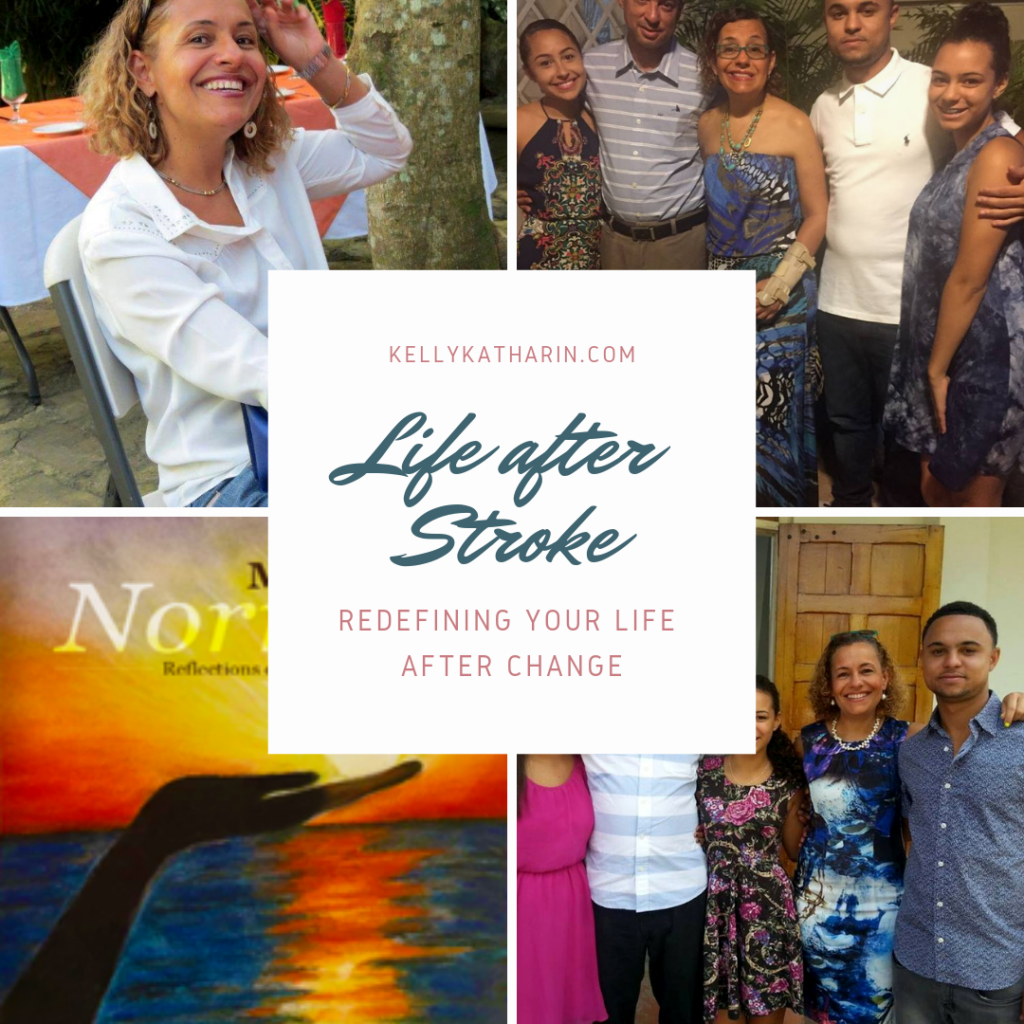
Disclaimer:
I am not a medical doctor nor am I a certified nutritionist and make no claims to the contrary. Each individual’s dietary needs and restrictions are unique to the individual. You are ultimately responsible for all decisions pertaining to your health. The information on this website is written and produced for informational purposes only. This website is not intended to diagnose, treat, cure or prevent any disease. Content should not be considered a substitute for professional medical expertise or treatment. The reader assumes full responsibility for consulting a qualified health professional regarding health conditions or concerns, and before starting a new diet or health program.
The Keto Diet is NOT a Universal Prescription

I have never offered the ketogenic diet as a universal prescription. And I don’t plan to start now. What I am convinced of, is that what we eat, how much we eat and when we eat is directly linked to our physical and mental well-being. I am also of the very strong opinion that we must assume responsibility for our own health. Yes! Doctors are an important part of the equation when it comes to managing our health. But the more you as a patient know, the better the questions you can ask so that together you can both decide on the best way to proceed. There is a wealth of information that is easily accessed. People with similar conditions are able to network more and more. There is great value to be derived from assessing the information out there and interrogating the options being presented to you. An informed patient is an empowered patient! So I present to you the following for your own consideration. This is not a prescription.
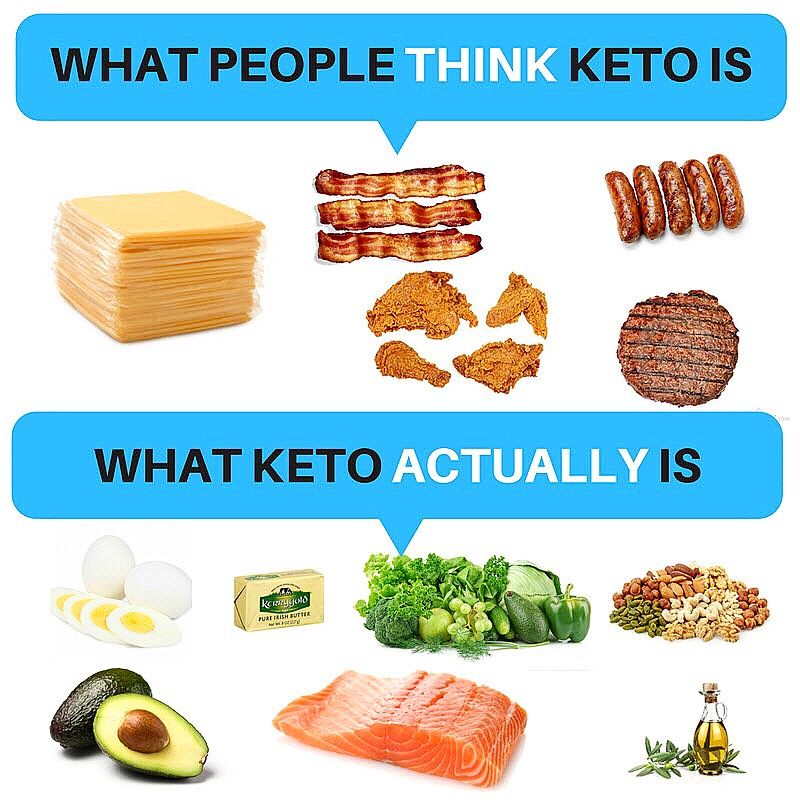
What Stroke Is
A stroke is essentially a “brain-attack” caused mainly by one of 2 things: either a lack of blood supply to the brain or bleeding in the brain. The lack of blood supply to the brain is most commonly caused by a blockage somewhere in a blood vessel carrying blood to the brain. This blockage could be a clot. Sometimes a blood vessel in the brain can rupture, causing bleeding in the brain. When either of these happen, parts of the brain are deprived of blood which is what carried oxygen and nutrients to the brain cells. Without this oxygen and food, the deprived brain cells literally die. Dead brain cells cannot communicate and this is why various bodily functions are impacted in the event of a stroke. There is literal brain damage which interrupts and impairs normal brain functioning. The survivor of a stroke who learns to walk again and move their limbs again has essentially created brand new pathways in their brain to re-establish control over those functions that were interrupted due to damage in one part of the brain. Yes, that’s the good news! The brain is an absolutely amazing organ. It can heal itself and regain functions. So it stands to reason: in addition to repetitive actions that literally teach the brain how to control let’s say making a fist again, is there anything that we can eat that facilitates brain health? In other words, are there foods that encourage the process of neuroplasticity, which is the ability of the brain to form and reorganize synaptic connections, especially in response to learning or experience or following injury.
The Birth of the Keto Diet
In the 1920’s children who had epilepsy that did not respond to medications were put on a low-carbohydrate, high-fat diet. This essentially caused them to start burning fat instead of glucose for energy. On this metabolic pathway, ketones are produced, hence the name “ketogenic” diet. Ketones cross through the blood-brain barrier and enter the brain, where they’re used as an alternative energy source. Seizure incidences fell significantly in these children treated with the keto diet. Today, the reputable John Hopkins hospital uses the keto diet to treat epilepsy.
How does the keto diet impact brain health?
- On the ketogenic diet, the body burns fat for energy instead of glucose. Ketones are produced which provide power to all organs, including the brain. This fuel has specific and beneficial signalling functions in the body, especially for the immune system AND the brain.
- When the body is burning fat for energy instead of glucose, as happens on the keto diet, it mimics the process that occurs during fasting and can lead to an increase in autophagy. Autophagy is simply the way that the body is able to keep itself functioning optimally by cleaning out old, damaged cells, and fixing damage and growing new ones.
- The ketogenic diet reduces the amount of glutamate in the brain and enhances the synthesis of GABA (this is an inhibitory neurotransmitter called gamma-aminobutyric acid) making it less likely for a seizure to occur.
- The diet can also reduce inflammation in the brain. How? On the keto diet, carbohydrates, including sugar, are practically removed from the diet. There are people who are insulin resistant. In the insulin resistant person, their body doesn’t utilize sugar efficiently with the result that insulin levels (the hormone responsible for metabolizing glucose) as well as blood sugar levels are high. This results in inflammation, including brain inflammation. Consider this reference where the keto diet was shown to reduce brain inflammation post stroke:
https://www.diabetes.co.uk/news/2017/sep/ketogenic-diet-could-reduce-brain-inflammation-after-stroke-or-injury-91887650.html - There have been studies demonstrating that the ketogenic diet can alter the gut microbiome, which is simply the microorganisms inhabiting the digestive tract. These studies found the ketogenic diet can increase certain bacteria species that promote an increased proportion of GABA to glutamate in the brain.
- The keto diet can increase your rate of neurogenesis (how often you make new brain cells). A high-sugar diet (i.e. the opposite of keto) slows your rate of neurogenesis (production of new brain cells) by spiking the insulin levels in your blood. Too much insulin degrades all your organs, including your brain. In one study, rats who ate a diet high in sugar and oxidized (damaged) fats showed impaired cognitive function after just two months. The area of the brain that was most affected was the hippocampus, where neurogenesis takes place.
Two Personal Testimonials of Stroke Survivors Healing with the Keto Diet
” I learned about the ketogenic diet and the importance of ketones for the brain. I decided that I wanted the ketones in my body. My diet included, among others, coconut oil, avocado, MCT oil, coffee. I removed all the grains and carbohydrates from my diet. I began consuming more meat (I did not eat meat before, maybe an occasional piece of chicken), eggs and vegetables like spinach and kale (I am lactose intolerant so there is no dairy in my diet).
After about two weeks, I felt as if a helmet was removed from my head. Everything became so clear, I remembered stuff and names. I thought losing memory is part of getting older. Nope. A few weeks more passed and I regained my strength in my fingers, I was able to close my hand, touch the pinky with my thumb, and actually type on the computer. It was slow at first but I practiced a lot. Without noticing how, the pain disappeared together with so many symptoms that I took for granted as being part of getting older, genes, and heredity. Everywhere you read online, people do the ketogenic diet to lose weight. It was not my purpose. Yes, I cannot lie. I lost 63 lbs. and losing weight was a very, very nice side effect!!! However, I mainly changed my diet to heal my brain. And it is possible. The ketogenic diet helped me to heal fast and I am a living proof. I would not change my diet for anything in the world.” From: http://healing-fast-with-keto.com/home-keto-diet/heal-fast-from-the-stroke.html
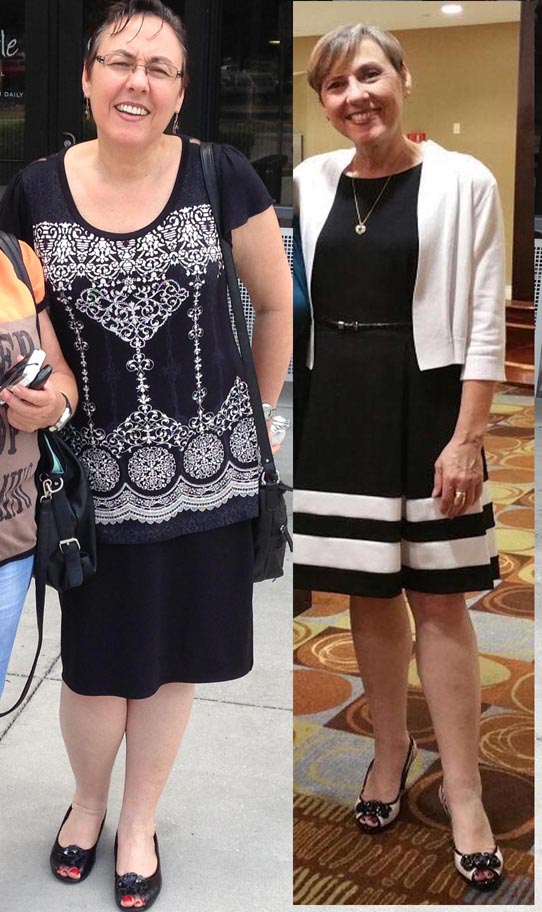
“I learned about neurogenesis, how sugar inhibits this. It gave me hope that I could possibly heal my brain. I learned about the ketogenic diet and how I actually need fat to heal my brain. Thanks to keto/LCHF I’ve got a somewhat working left hand again, my muscles are soft, fairly pain free, my mental health is so much better. I think clearer, process faster, depression and anxiety no longer runs riot in my head. I no longer need to take daily naps. I can handle loud noises, crowds of people. I started this journey 16 months post strokes and may have lost 21 kg (46 lbs) but the fact I feel like I’ve got my mind back and can once again contribute back to society, is so much more important to me.” From: https://www.dietdoctor.com/trying-to-heal-my-broken-brain
A Word on Statins
Statins are a set of drugs that are prescribed to lower cholesterol. New thinking on cholesterol will be the subject of another blog post, but for this one, let’s simply focus on statins as part of the therapy for stroke survivors. Statins are typically part of the regimen of drugs that stroke survivors are put on. Again, I present the following simply for your consideration. Think about what I will share and discuss with your doctor. ASK THE HARD QUESTIONS and listen to your own body.
Follow the (Statins) money…
- One statin alone, Lipitor, has been worth $125 billion to Pfizer since 1997
- Look at the funders of major studies “proving” that statins are “effective”. The CTSU is the Oxford Clinical Trial Service Unit. Approximately £115 million of funding from drug companies to the CTSU was identified. In the disclosures that were required as part of the full BMJ independent investigation, it emerged that the full extent of the funding from pharma to the CTSU was beyond £268 million. That was back in 2014; it can only have increased since then.
Statin claims debunked
Zoe Harcombe, PhD is an independent author, researcher and speaker in the field of diet, health and nutrition. She goes through a study making bold claims about the life saving benefits of statins in detail and debunks it based on the evidence presented and methodology of the study itself (http://www.zoeharcombe.com/2019/02/statins-in-the-over-75s/)
“Wonder drugs cut toll of strokes by 40%” was a Mail headline. The Telegraph proclaimed “Strokes fall by 40% due to increased statin use” and The Mirror went with “Statins reduce number of stroke sufferers by 40% in 16 years”. Harcombe goes through the articles under these headlines to see the express relationship. Nothing. There is no direct link to statins and stroke incidence. The actual decline cannot be attributed to statins, is not the same across different demographics including age group, sex and race, does not speak to the other moderating influences of lifestyle changes including smoking, diet, etc.
(http://www.zoeharcombe.com/2013/10/statins-and-strokes-disgraceful-headlines/)
There are many adverse side effects of statins that ought to be considered too: “Flu (high temperature, sore throat, runny nose, cough and chills); Common cold, such as runny nose, sore throat or sinus infections (nasopharyngitis or upper respiratory tract infections); Feeling sick (nausea); Back pain; Joint pain (arthralgia); Injection site reactions, redness, bruising or pain; Rash.” Given the importance of cholesterol in the body, anything that interferes with it’s production is bound to have serious adverse effects on overall health. The “statin-shuffle” is an actual thing! Muscle and nerve damage due to statin use result in a characteristic shuffle in users.
The Bottom Line: Keto & Stroke Recovery
What’s the worse that could happen if you cut carbohydrates from your diet even if you’re a stroke survivor? You’d probably miss rice and bread and cake. So what. There is no bodily function that is impaired in the absence of carbs. Carbohydrates are non-essential macro nutrients. And the adverse effects of sugar are well known. Check out “The Case Against Sugar” by Gary Taubes.
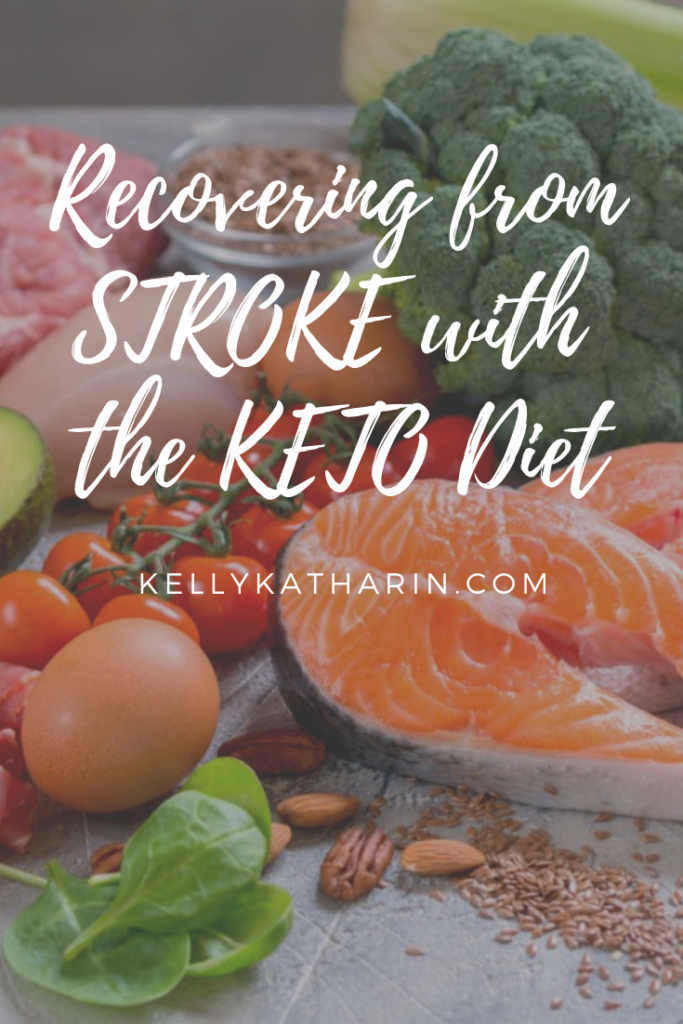
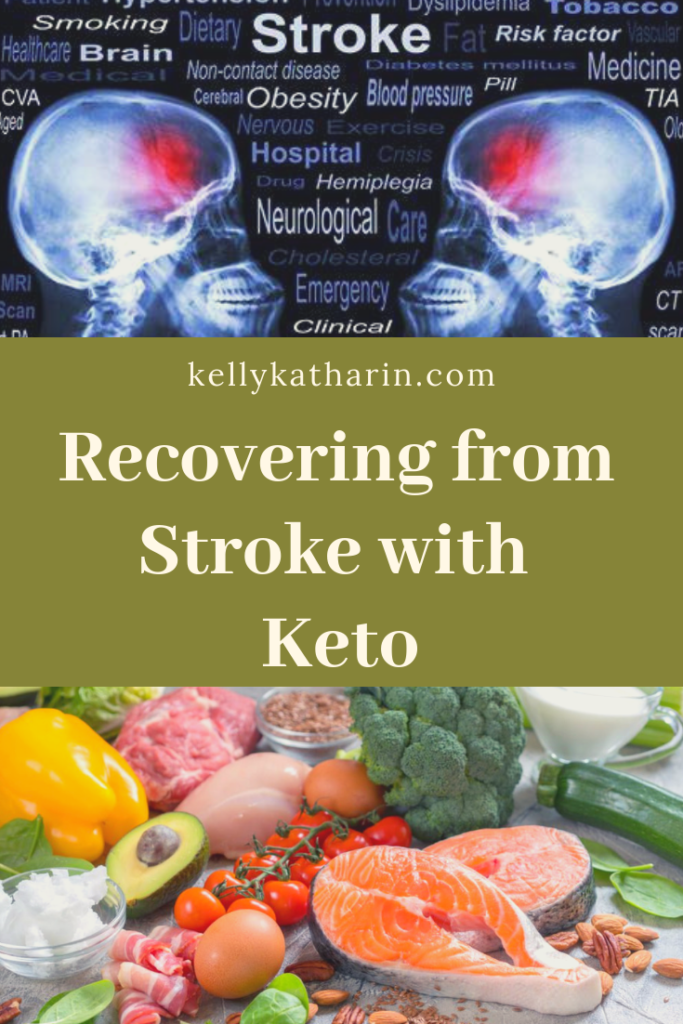
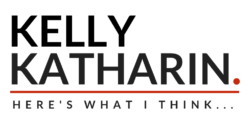
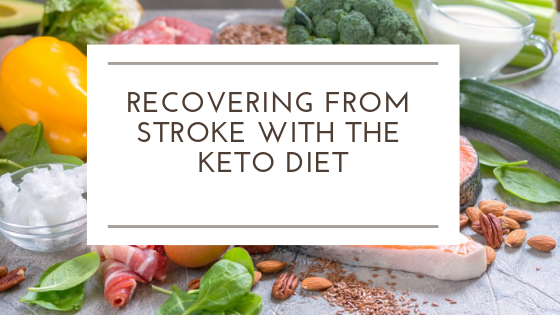
My husband just had a minor stroke at age 39, THIS IS AMAZING info. I lost 60 pounds on keto, and he was kind of on it (he is small and fit) but now we are taking it more seriously as a family
This is great info, thank you!
Oh wow! Congratulations on your own weight loss. And all the best to hubby. May his recovery be full and complete. If he does go low-carb/keto, I’d be interested in hearing his progress.
I had a stroke last May and just found this site. I’ve been on Keto since my stroke and have loast 45#. It’s very encouraging to find other like minded people!
Wow, Nicole. That’s incredible.
Have you noticed any improvements in your motor control, etc since going keto?
I’ve had several concussions over my lifetime. The last injury left me with lingering problems on my left side- unable to touch my pinky to my thumb and I couldn’t draw a square or Circle with my left foot. I started Keto because I was prediabetic. Now to my surprise, I can touch my pinky and draw a circle with my foot and my mind is clearer and my memory. I read your story after telling my husband all of this. It was a validation. Thank you for sharing, I’m happy for your recovery. Isn’t it such a wonderful miracle!
Hello Yvonne! How wonderful!!! Thank you so much for sharing.
Hi ?
I’m going to be able to do with my friends and relatives.
Hello Kelly, My dad had a stroke back in 2016 and then another very minor one in 2019. He has been taking meds since he suffered the first one, but I am wondering if there is a protocol for weanning patients off statins?
Hello Pamela:
I hope your Dad is improving. Tapering medications and deprescribing medicines is best done under the supervision of a medical doctor. Statins are quite controversial but any decisions around taking or not taking them need to be done with a wholistic appreciation of ALL the risk factors involved. All the best to you and him.
There are two cholesterol systems in us. One is for the body, the other is for the brain. LDL and HDL cholesterol cannot cross the BBB (Blood Brain Barrier), so the brain makes it’s own cholesterol. The cholesterol level in the brain is higher than the rest of your body, mainly because the brain is made up of 50% fat and 50% cholesterol. This is where Statins cause problems. Statins DO cross the BBB, and reduce cholesterol in the brain as well as the body. When cholesterol is reduced in the brain, significant problems occur, and brain damage begins. Brain fog, dementia, and Alzheimer’s are often the result of using Statins.
Very interesting. Where did you get that information from? Cheers